What makes a hero?
- Published
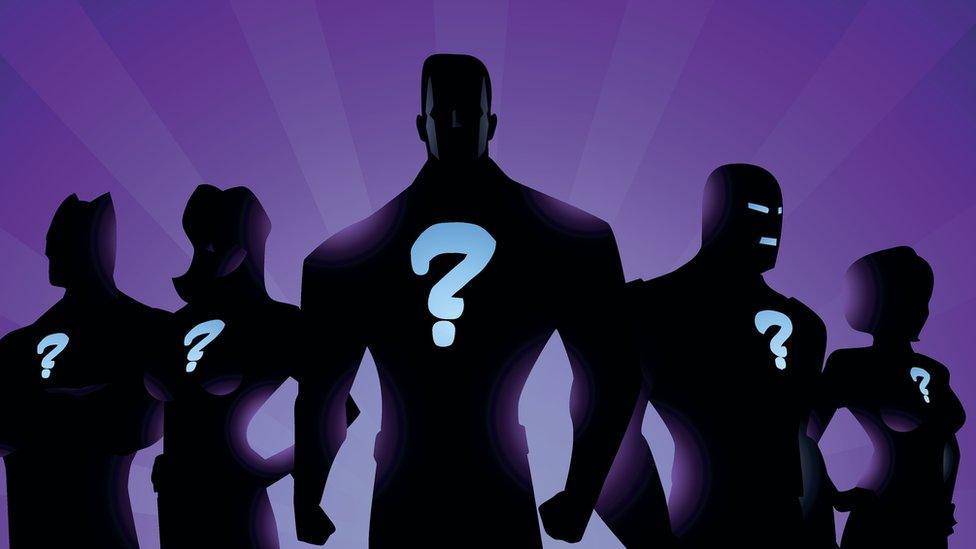
Heroes are known for their bravery.
Whether it's saving someone from a burning vehicle or after they fall on to train tracks, thousands of people risk their lives helping others each year.
Berkeley Johnson helped rescue a two-year-old from under several feet of debris following the California mudslides and was labelled a hero.
But does anything set these people apart?
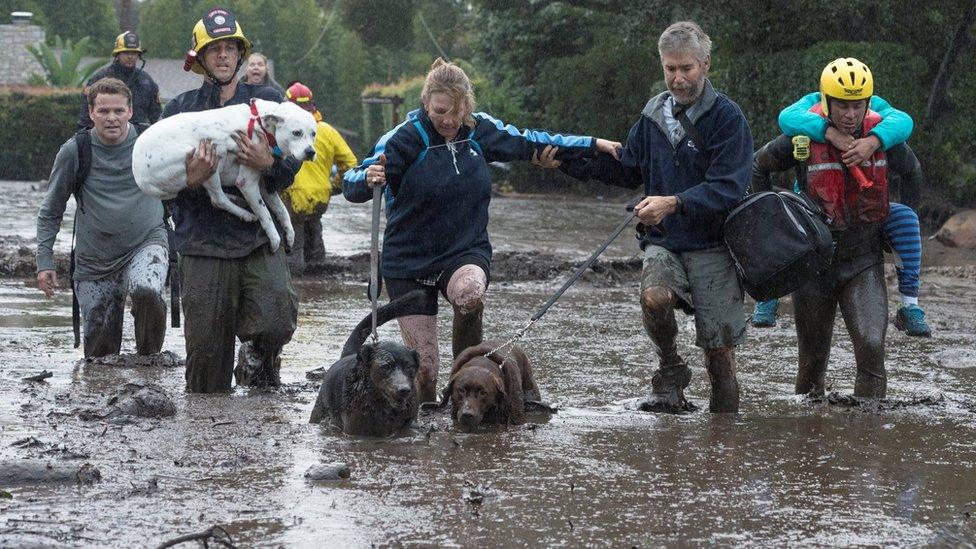
Emergency services evacuate residents in California
Risk-takers
Berkeley decided to leave the relative safety of his roof to wade through deep mud, passing "boulders the size of vans", in search of help.
If he hadn't, the toddler may never have been found.
And it's that sort of risk-taking that's an important trait, according to Dr Punit Shah, from the University of Bath's Department of Psychology.
"People that act quickly and are more impulsive are more likely to engage in acts of heroism," he says.
"There's not a sort of heroic personality trait in and of itself, but I think one of the things that feeds into it are people that are risk-takers."
Other traits may include "people that value other humans, that have good moral values - and also people that value social status".
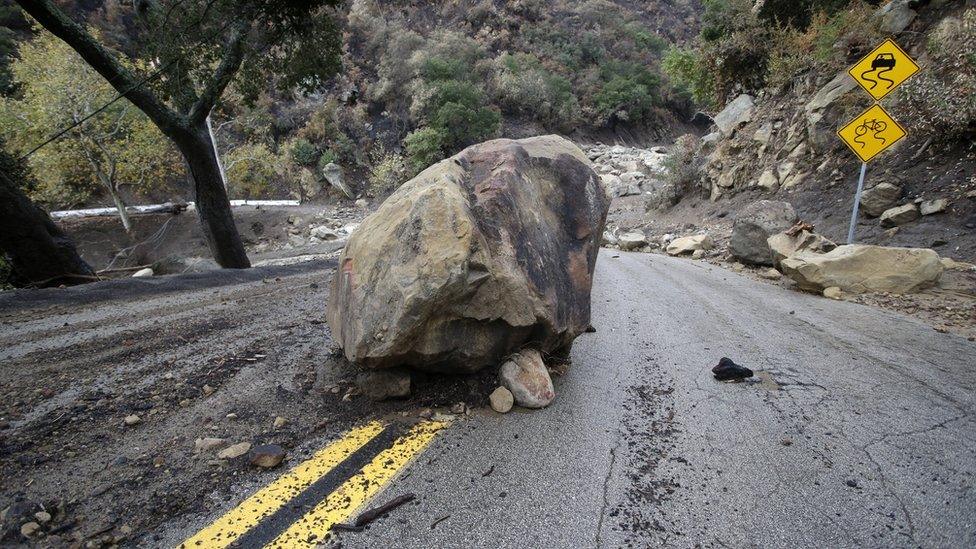
Boulders the size of cars rolled down hills and slammed into roadways in Santa Barbara County
Dr Shah says acts of heroism have almost become part of being a human as we've evolved.
"Over thousands of years people more likely to engage in these acts of heroism would've risen in the social hierarchy.
"At the time of the incident people don't think 'oh if I do something it will make me look good'. But somewhere we sort of evolved to engage in that way of thinking.
"Things like ego and social status are very much intertwined with the decisions that we make."
The bystander effect
Acts of heroism rely on situational factors as well as personality traits, according to Dr Shah.
If plenty of people are around, the "bystander effect" states an individual is less likely to intervene.
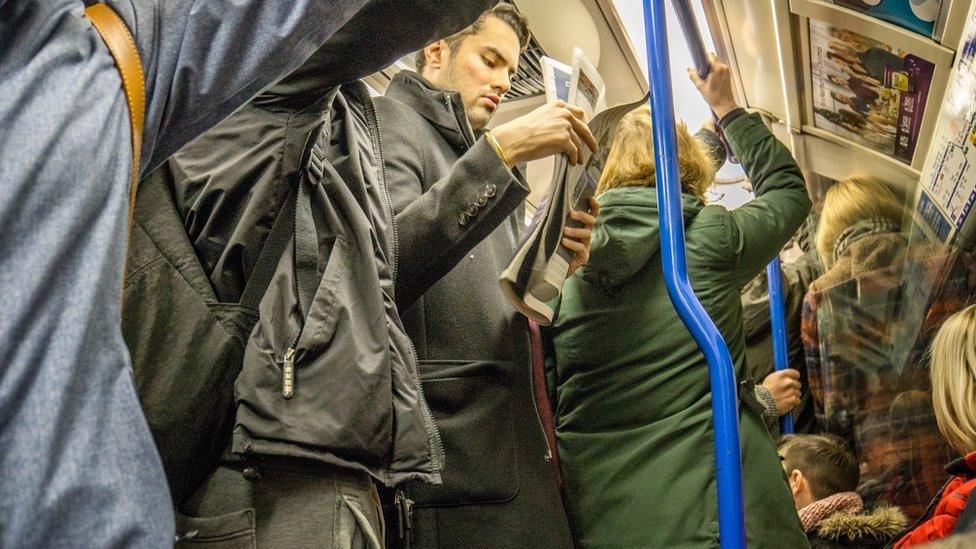
The chances of someone intervening are lower when there are more people around, according to the bystander effect
But when it's just you and a person in need, you're more likely to act.
"There's a combination of the circumstance - if you're left alone in a situation you're more likely to help - and then whether or not you actually do is decided based upon your personality," says Dr Shah.
"When you've got a person with certain personality traits and a situation requiring a so-called heroic act, you get these acts of heroism."
The empathy balance
But having a naturally caring side doesn't always mean you'll be leaping into action.
"If you are overly empathetic, if you do put yourself into a person's shoes a bit too much and allow that emotional response to kick in, it might then prevent you from helping," Dr Shah says.
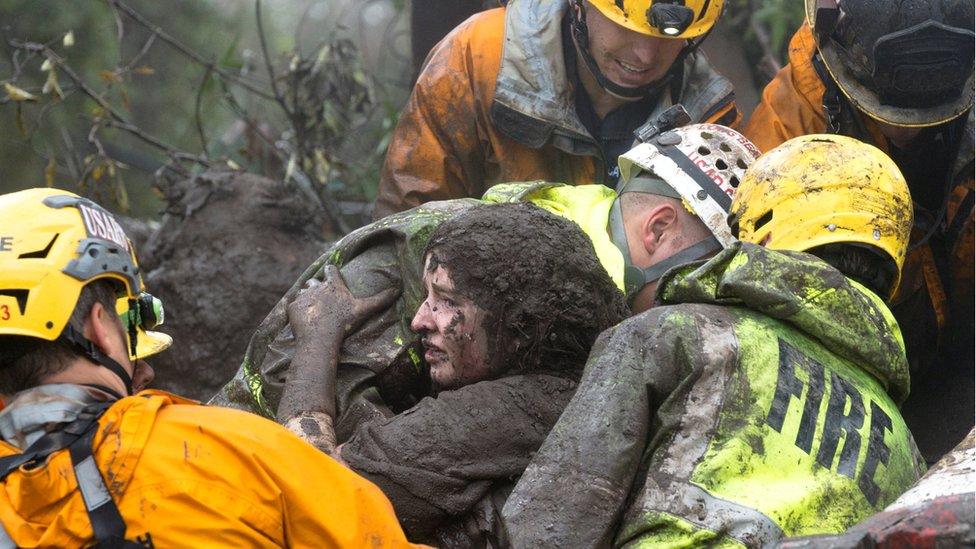
He relates it to coffee. The right amount can help you function but too much can be detrimental.
"Some people who are too empathetic can be distressed at seeing other people in pain, at seeing the world as a horrible place, and that means that they can't do anything.
"They're so overwhelmed with someone else's suffering it actually impacts on them."
Dr Shah says more research needs to be done, especially on the relationship between empathy and heroism, but something is standing in the way.
"We often report on acts of heroism where the person survives, but there are many cases where heroes are hurt and do die.
"It means that we can't do as much research and work on heroism as we'd like because actually we have this almost biased view of 'heroes always survive' - but there are many heroes that don't".
Listen to Newsbeat live at 12:45 and 17:45 every day on BBC Radio 1 and 1Xtra - if you miss us you can listen back here